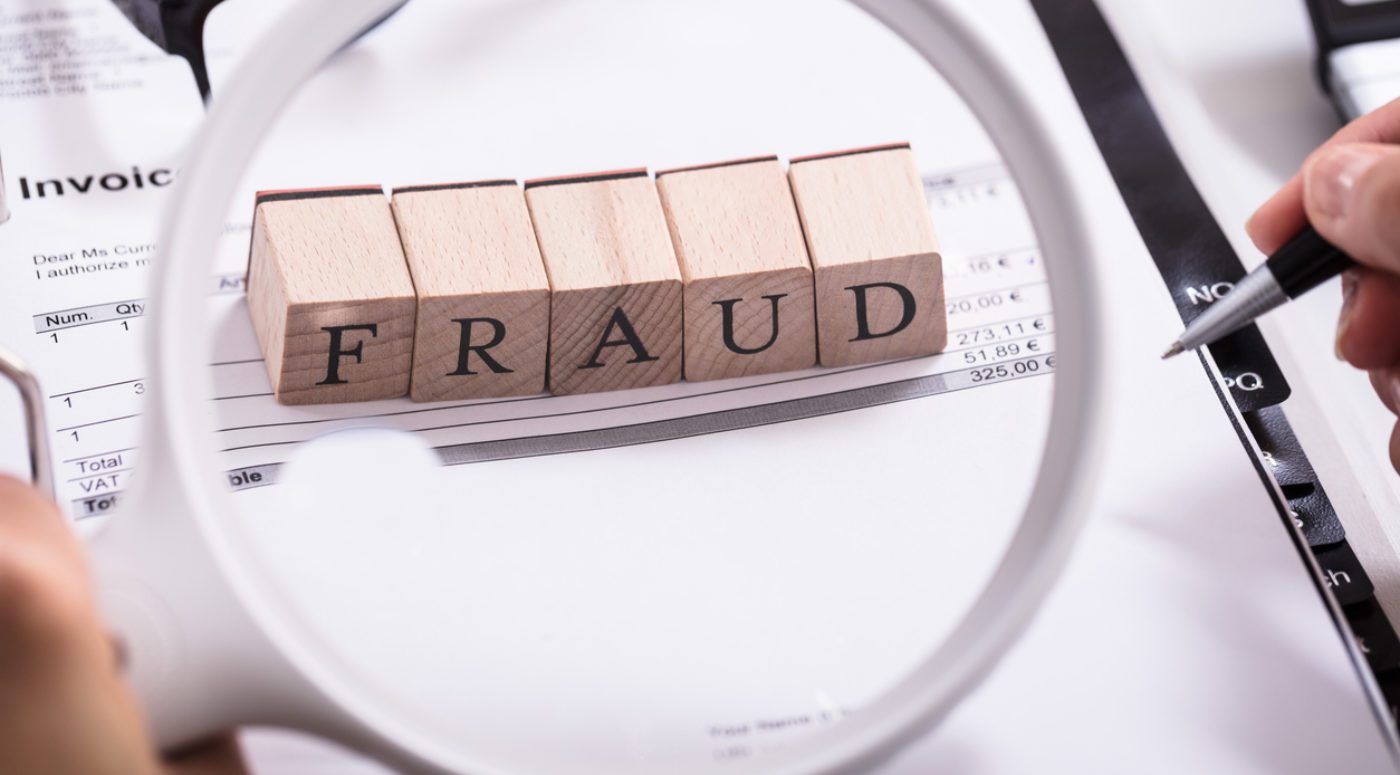
From organised criminals committing complex financial crime to vulnerable individuals trying to find a way to pay their rent, the offence of fraud is wide and can encompass a diverse range of situations. Perhaps you are wondering how the court comes up with the appropriate sentence for fraud, and what factors they take into consideration when making their decision. This article explains the sentencing for fraud, as well as providing some examples of fraud cases. Remember, there is no substitute for instructing your own criminal defence solicitor to advise you on the facts of your case.
What are the legal elements of the offence of fraud?
The Fraud Act 2006 sets out three different ways in which you can commit fraud. These are fraud by false representation, fraud by failing to disclose information, and fraud by abuse of position. The legal elements for each of these offences are different, but the common theme is that in all cases, the defendant must be found to be acting dishonestly. As well as individuals, companies can be charged with fraud. In order to hold a company accountable, it must be possible to show that a ‘directing will and mind’ of the company committed the fraud.
Fraud by false representation (Section 2 Fraud Act 2006)
A false representation is an untrue or misleading statement, which is made by the defendant knowing or believing it might be false. This statement could relate to a fact, to the law, or the state of mind of the defendant. It could be said verbally, or sent electronically, or via letter. A false representation can also be implied by the failure to say or communicate information. This offence occurs where a false representation is made dishonestly, with the intention to make a gain for the defendant or another person, or the intention to expose another person to a loss.
Fraud by failing to disclose information (Section 3 Fraud Act 2006)
This offence occurs where the defendant breaches a legal duty to disclose information in order to either make a financial gain for themselves or someone else, or cause a loss to someone, or expose them to risk of loss. This offence often relates to false insurance claims. For example, say you make a claim for an item that you believe to be stolen, you receive the pay out but you subsequently locate the item. If you did not tell the insurance company that you had found the item, you would be guilty of this offence. Another example of where this offence arises is in relation to applications for insurance cover – for example, if you apply for car insurance but fail to disclose your involvement in previous car accidents.
Fraud by abuse of position (Section 4 Fraud Act 2006)
This type of fraud is usually committed by persons in positions of authority. It occurs where there is an expectation that a person will safeguard the financial position of a person or organisation, or at the least there is an expectation that the person will not act against the person or organisation’s financial interests. In order to be found guilty of fraud by abuse of position, the prosecution must convince the court that you dishonestly abused your position of authority, with the intention of financially benefiting yourself or another person by your actions, or with the intention of causing a loss to someone. Fraud by abuse of position can be committed by an omission to act, as well as by a positive act. For example, you could be convicted of this offence if you are a financial director of an organisation and you are found to have intentionally neglected one of your duties in order to create gain for the organisation.
What are some examples of fraud by false representation?
Of all the fraud offences, fraud by false representation is perhaps the most difficult one to envisage. This is because the law is drafted widely to cover a diverse range of scenarios. Here are some examples of fraud by false representation:
- You are making a mortgage application to buy your first house. You are a freelance consultant with an ad hoc In the previous three months, you have earned £8000 per month, but prior to that your average earnings per month were £2000 per month. You inform the mortgage company that for the past year, you have earned, on average, £8000 per month.
- You sell a car to someone on Gumtree, but you are not actually the owner of the car.
- You submit an expenses claim to your employer for a three day work trip, but the trip did not actually take place.
- You apply for a credit card, providing false information in respect of your credit history.
Real life cases of fraud by false representation
In 2020, a Labour councillor was found guilty of fraud by false representation after she applied for a council house in Greenwich in 2008, when she was already the owner of two houses and a flat. She was convicted after the council lodged a private prosecution against her.
In 2017, the Serious Fraud Office charged four individuals with conspiracy to commit fraud by false representation and unlawful assistance contrary to Section 151 of the Companies Act 1985. The case related to the conduct of senior bankers during the financial crisis. It involved dealings between Barclays Plc, Qatar Holdings LLC, and Challenger Universal Ltd. Former Barclays executives were alleged to have helped to funnel £322 million in secret fees to Qatar in return for rescue financing during the financial crisis of 2008. The defendants were ultimately acquitted, raising questions regarding the capability of the Fraud Act to hold top bankers accountable for corporate crime.
What are the sentencing guidelines for fraud?
The first step for considering what sentence to give a defendant for fraud is to determine the offence category. The categories contain a sentence starting point, and a sentence range. The two factors that must be considered in order to determine the offence category are culpability and harm.
Culpability is assessed by looking at the defendant’s role in the offending. For example, if the defendant is a senior executive who played a leading role in orchestrating a fraud, culpability would be high. By contrast, if the defendant is a vulnerable person who was duped by a manipulative relative into submitting a fraudulent credit card application, culpability would be low.
Next, the court will look at the level of harm caused by the offence. For fraud offences, the key consideration here is the value of the unlawful gain/loss. There are five categories of harm, less than £5000 (Category 5), £5000-£20,000 (Category 4), £20,000 – £100,000 (Category 3), £100,000 – £500,000 (Category 2), and £500,000 or more (Category 1). The court will also consider the impact of the fraud upon the victim; factors suggesting a high impact would be a serious detrimental effect on the victim, and any particular vulnerability of the victim.
Using this information, the court will then place the offence within the appropriate category. Say, for example, you made a fraudulent insurance claim to the value of £1 million. It was not the first time you had committed this type of offence. You had previously been in prison for a similar offence committed in your mother’s name. Because of the value, this would be a Category 1 offence. Your culpability would probably be in the medium category. This would place the starting point for your sentence at five years custody. Your sentence would be aggravated if you committed the offence whilst still on licence for your previous offence, up to a maximum of six years. However, on the other hand, genuine remorse, early admissions of guilt, and the demonstration of steps taken to address your offending behaviour, among other things, could serve to reduce the length of your sentence, down to a minimum of three years.
For more information, see the Sentencing Council’s guide on fraud.
What is the maximum sentence for fraud?
Fraud is an either way offence, which means that it can be heard in the Magistrates’ Court or the Crown Court depending on the seriousness of the offence and whether the defendant elects for a trial by jury. The maximum sentence for fraud on indictment is a 10 year prison sentence and an unlimited fine, or both. If the case is heard in the Magistrates’ Court, the maximum sentence is 12 months’ imprisonment or an unlimited fine (if the offence was committed before 12 March 2015, the maximum fine in the Magistrates’ Court is £5000).
Where to get further help?
Have you been accused of fraud? Remember there is a high legal threshold that must be proven by the prosecution in order to convict you. Stuart Miller Solicitors’ criminal defence team will master the ins and outs of your case in order to provide you with the best possible defence. Do not delay, contact us for a stress-free consultation.
OUR COMMITMENTS TO YOU:
-
Responsive
A legal expert will consult you within 24 hours of making an enquiry.
-
Empathetic
We will always treat you with trust, understanding and respect.
-
Specialised
Your case will be handled by an expert who specialises in your type of offence.
-
Proactive
We will take early action to end proceedings as soon as it is practically and legally possible to do so.
-
Engaged
You will be kept updated on your case at all times. We will provide a named contact available to answer your questions.
-
Caring
We understand this is a difficult and stressful time for you and your family. Our team will support you every step of the way.
-
Tenacious
We will never give up on your case. We fight tirelessly to get you the best possible outcome.

